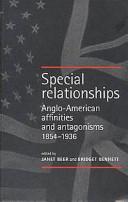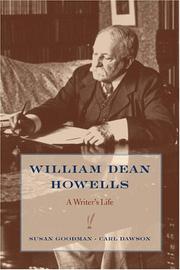| Listing 1 - 2 of 2 |
Sort by
|

ISBN: 0719058171 1847790127 1417569328 9781526137654 9781417569328 1526137658 1280733950 9781280733956 9780719058172 071905818X 9780719058189 9781847790125 Year: 2002 Publisher: Manchester New York Manchester University Press
Abstract | Keywords | Export | Availability | Bookmark
 Loading...
Loading...Choose an application
- Reference Manager
- EndNote
- RefWorks (Direct export to RefWorks)
Opening up readings of writers in the growing field of transatlanticism, this text discusses diverse and innovative interventions in the field of Anglo-American literary relations, revealing previously unresearched connections between writers on both sides of the Atlantic.
American literature. --- American literature - History and criticism. --- English literature. --- Literature, Comparative. --- American literature --- English literature --- Comparative literature --- English Literature --- American Literature --- English --- Languages & Literatures --- History and criticism --- American and English --- English and American --- English influences --- American influences --- Literature [Comparative ] --- 19th century --- 20th century --- Alfred North Whitehead. --- Bolton Whitman Fellowship. --- Britain's foreign policy. --- British governments. --- George Eliot. --- Gertrude Stein. --- Harriet Beecher Stowe. --- Henry James. --- Highland Clearances. --- Mark Twain. --- New England farm life. --- Picasso. --- Sarah Orne Jewett. --- Walter Scott. --- hegemonic US. --- post-Second World War British governments. --- transatlantic literary network. --- working-class portrait. --- History and criticism. --- American and English. --- English and American. --- English influences. --- American influences.

ISBN: 0520238966 1282357204 9786612357206 052093024X 1598755498 9780520930247 1417595906 9781417595907 9781598755497 9780520238961 6612357207 9781282357204 Year: 2005 Publisher: Berkeley Los Angeles London University of California Press
Abstract | Keywords | Export | Availability | Bookmark
 Loading...
Loading...Choose an application
- Reference Manager
- EndNote
- RefWorks (Direct export to RefWorks)
Possibly the most influential figure in the history of American letters, William Dean Howells (1837-1920) was, among other things, a leading novelist in the realist tradition, a formative influence on many of America's finest writers, and an outspoken opponent of social injustice. This biography, the first comprehensive work on Howells in fifty years, enters the consciousness of the man and his times, revealing a complicated and painfully honest figure who came of age in an era of political corruption, industrial greed, and American imperialism. Written with verve and originality in a highly absorbing style, it brings alive for a new generation a literary and cultural pioneer who played a key role in creating the American artistic ethos. William Dean Howells traces the writer's life from his boyhood in Ohio before the Civil War, to his consularship in Italy under President Lincoln, to his rise as editor of Atlantic Monthly. It looks at his writing, which included novels, poems, plays, children's books, and criticism. Howells had many powerful friendships among the literati of his day; and here we find an especially rich examination of the relationship between Howells and Mark Twain. Howells was, as Twain called him, "the boss" of literary critics-his support almost single-handedly made the careers of many writers, including African Americans like Paul Dunbar and women like Sarah Orne Jewett. Showcasing many noteworthy personalities-Henry James, Edmund Gosse, H. G. Wells, Stephen Crane, Emily Dickinson, and many others-William Dean Howells portrays a man who stood at the center of American literature through the late nineteenth and early twentieth centuries.
Howells, William Dean --- Critics --- Novelists, American --- Howells, William Dean, --- Howells, W. D. --- Howells, William D. --- Novelists [American ] --- 19th century --- Biography --- United States --- american authors. --- american imperialism. --- american letters. --- american literature. --- atlantic monthly. --- biography. --- civil war. --- classics. --- edmund gosse. --- emily dickinson. --- gender. --- greed. --- henry james. --- hg wells. --- industry. --- journalism. --- justice. --- labor. --- lincoln. --- literary criticism. --- literary movement. --- literature. --- naturalism. --- nonfiction. --- ohio. --- paul dunbar. --- political corruption. --- poverty. --- progressive era. --- realism. --- regionalism. --- robber barons. --- sarah orne jewett. --- social change. --- social justice. --- stephen crane. --- twain. --- wealth. --- william dean howells.
| Listing 1 - 2 of 2 |
Sort by
|

 Search
Search Feedback
Feedback About UniCat
About UniCat  Help
Help News
News